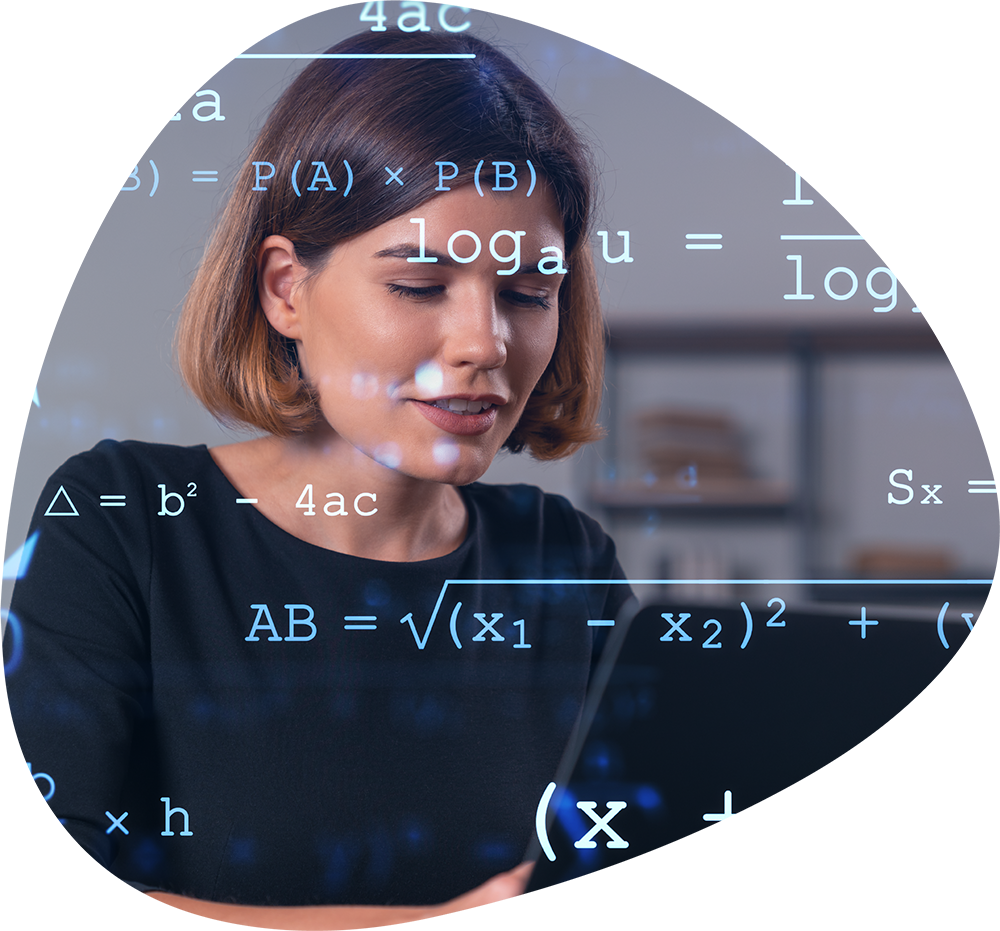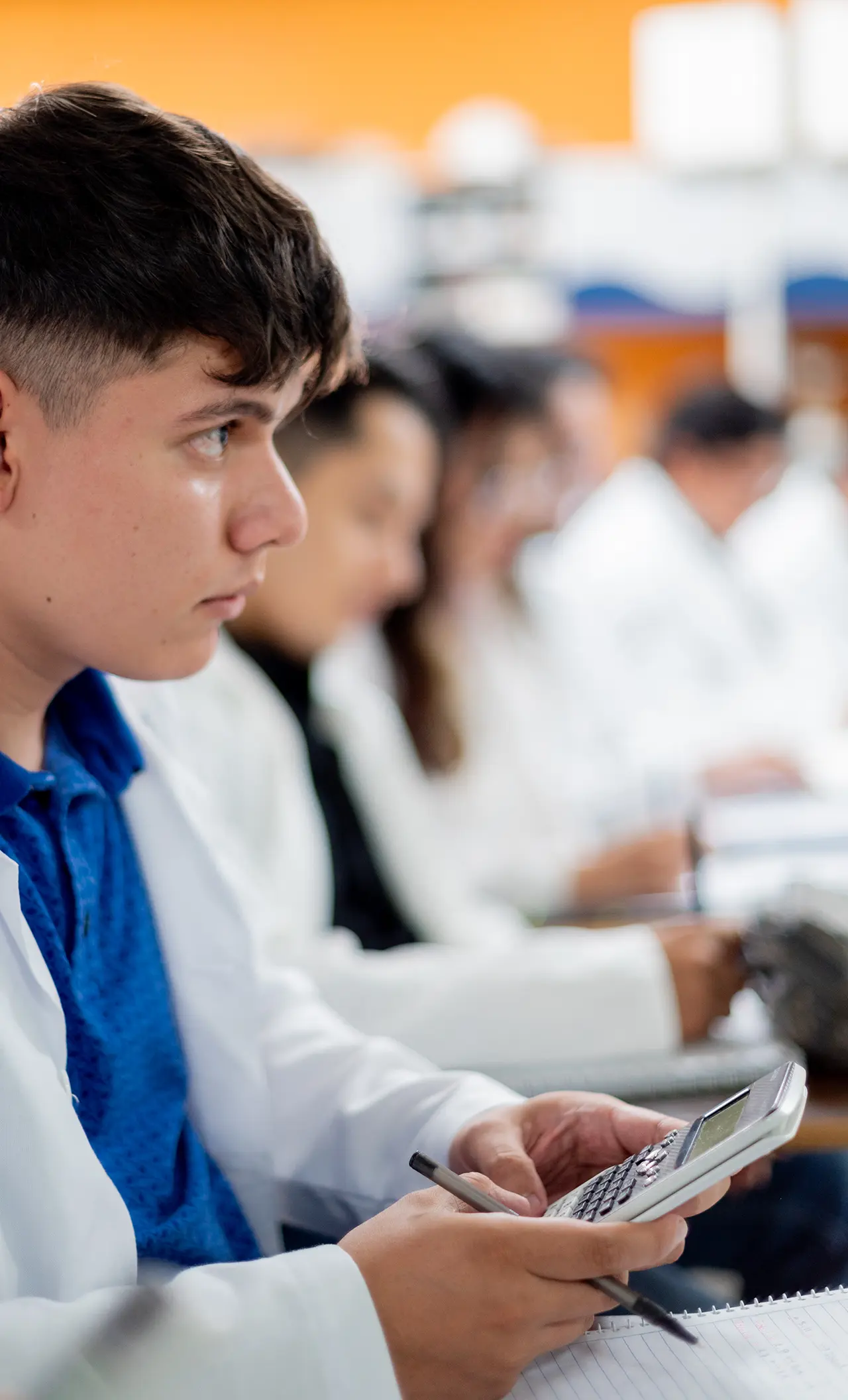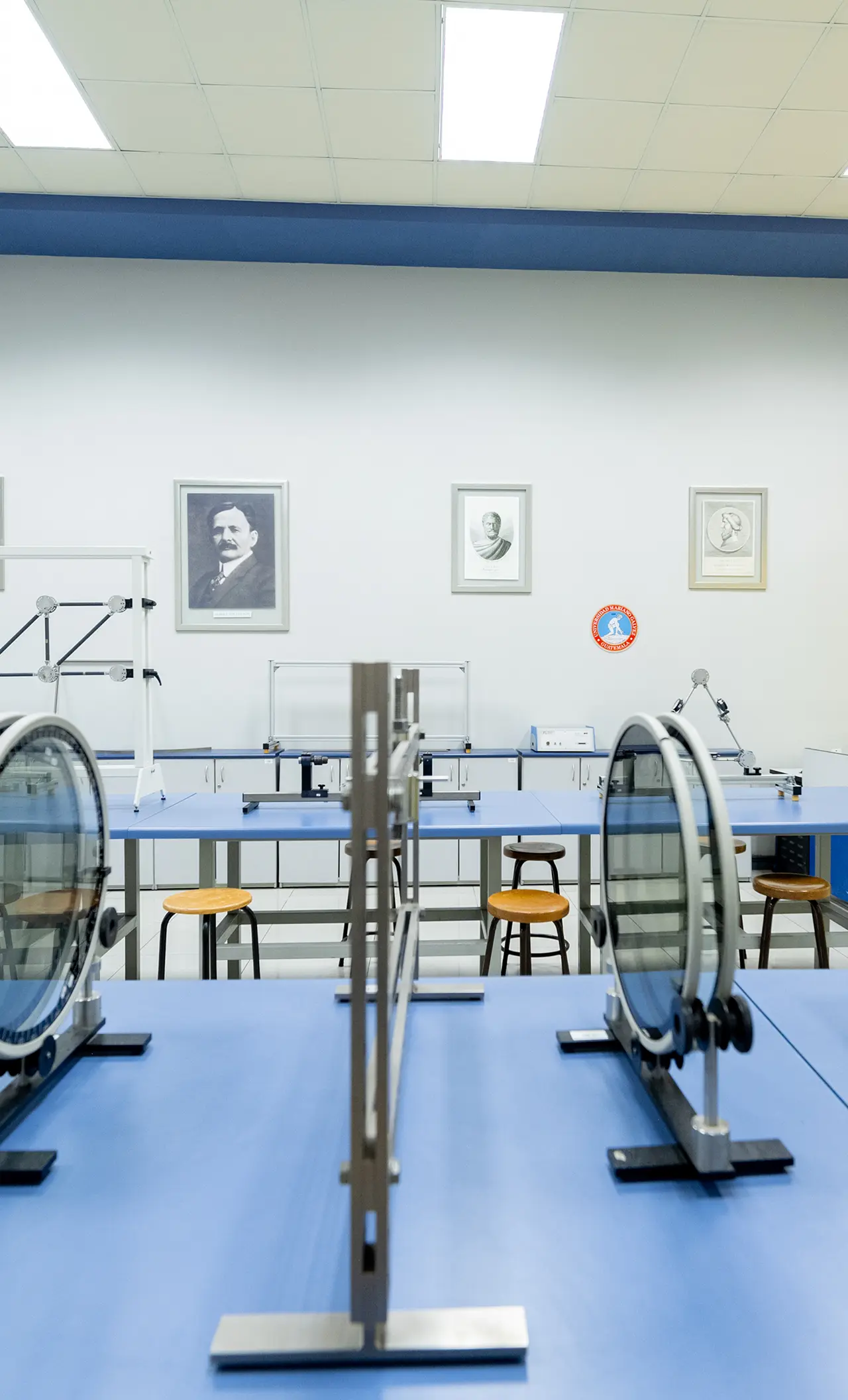
- Bachelor's Degree in
- Mathematics
- Degree to be obtained
- Bachelor's Degree in Mathematics
- Academic degree
- Bachelor's Degree
- Duration
- 5 years
- Modality
- In-person
- Schedule:
- Daily Morning Session
- Career description
-
The Bachelor's Degree in Mathematics is an academic program that focuses on the study of mathematics, covering the subjects of algebra, calculus, geometry, statistics, probability, linear algebra, number theory and more.
- What will you learn during the program?
-
Students learn to conduct research, collect and analyze data, develop theories and contribute to knowledge in a specific field, such as physics, biology, chemistry, among others. You also acquire skills in problem-solving, communication and collaboration in scientific projects.
Gallery
AdmissionProfile
The required profile for a Bachelor's Degree in Mathematics includes a strong interest and passion for mathematics, mathematical skills, analytical ability, problem-solving skills, and a willingness to study in a self-disciplined manner. In addition, the ability to communicate mathematical ideas and basic computer skills are valued.
Graduate'sProfile
Strong knowledge in mathematics, covering a variety of areas.
Advanced problem-solving and logical reasoning skills.
Ability to apply mathematical concepts in real-world situations.
Proficiency in data analysis and mathematical modeling.
Ability to communicate mathematical results and concepts effectively.
Preparation for careers in research, teaching, industry, technology, statistics and more.
Flexibility to adapt to diverse professional areas requiring strong analytical skills.
Career Opportunities

1. Mathematics professors.
2. Conducting mathematical investigations.
3. Data analysis, mathematical modeling, programming, and problem-solving.
4. Performance roles as statisticians, analyzing data and providing key information for decision making in various industries.
5. Work in banking, investment and risk management, applying mathematical models to financial issues.
6. Advising in mathematical problem solving and quantitative analysis to companies and organizations.
7. Employment as data scientists.
8. Participation in the design and analysis of advanced systems and technologies.
9. Work in the field of data protection and cyber security.
10. Work in government agencies, non-profit organizations and international organizations.
Curriculum
| 1° Ciclo | ALGEBRA SUPERIOR | DESARROLLO HUMANO Y PROFESIONAL | GEOMETRÍA PLANA Y DEL ESPACIO | LÓGICA MATEMÁTICA | PROGRAMACIÓN PARA LA CIENCIA Y LA INGIENIERIA | |
|---|---|---|---|---|---|---|
| 2° Ciclo | ALGEBRA INEAL I | CALCULO I | DEMOSTRACIONES Y ESCRITURA MATEMÁTICA | GEOMETRÍA NO-EUCLIDIANA | MATEMÁTICA DISCRETA I | |
| 3° Ciclo | ALGEBRA LINEAL II | CALCULO II | FÍSICA I | MATEMPÁTICA DISCRETA II | TEORIA AXIOMÁTICA DE CONJUNTOS | TEORÍA DE NÚMEROS |
| 4° Ciclo | ALGEBRA ABSTRACTA I | ANÁLISIS REAL I | CÁLCULO VECTORIAL Y MULTIVARIABLE | ECUACIONES DIFERENCIALES ORDINARIAS | FÍSICA II | |
| 5° Ciclo | ALGEBRA ABSTRACTA II | ANÁLISIS DE VARIABLE COMPLEJA | ANÁLISIS REAL II | ECUACIONES DIFERENCIALES PARCIALES | ESTADÍSTICA Y PROBABILIDAD PARA LA CIENCIA E INGENIERÍA | FÍSICA III |
| 6° Ciclo | ANÁLISIS TENSORIAL | ESTADÍSTICA INFERENCIAL | FÍSICA MODERNA | TOPOLOGÍA | ||
| 7° Ciclo | ANÁLISIS NUMÉRICO | ANÁLISIS REAL III | MECÁNICA CLÁSICA I | PROCESOS ESTOCÁSTICOS | TOPOLOGÍA ALGEBRAICA | |
| 8° Ciclo | ANÁLISIS FUNCIONAL I | ANÁLISIS NO-ESTÁNDAR | GEOMETRÍA DIFERENCIAL I | MECÁNICA ANALÍTICA | ||
| 9° Ciclo | ANÁLISIS FUNCIONAL II | MECÁNICA CUÁNTICA I | TÓPICOS SELECTOS DE MATEMÁTICA I | |||
| 10° Ciclo | FRONTERAS DE LA MATEMÁTICA | INTRODUCCIÓN AL ALBEBRA DE LIE | MÉTODOS MATEMÁTICOS PARA LA FÍSICA I | TÓPICOS SELECTOS DE MATEMÁTICA II |


